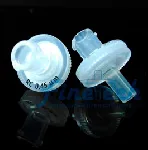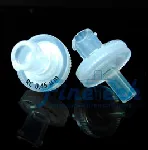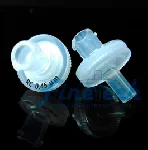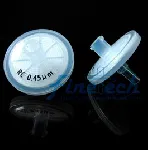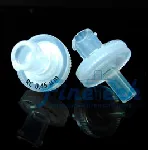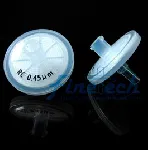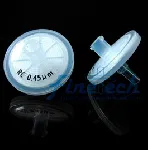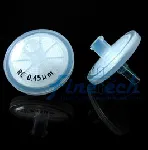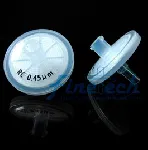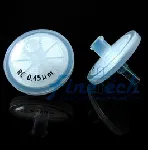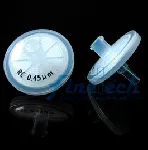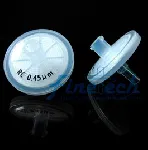Syringe filters
Nylon: nylon syringe filters have become the 'standard' material due to their wide chemical compatibility and their hydrophobic nature. They can be used for filtering aqueous samples and most solvents.
Nylon Premium filters are subjected to a double quality control for the most demanding applicationss.
Regenerated cellulose: the regenerated syringe filters have a lower protein retention than those made of nylon and are less extractable than PVDF. Ideal for aqueous solutions.
PTFE: syringe filters made of PTFE and have the lowest extractables levels and the widest chemical compatibility. They are especially suitable for filtering solvents due to their hydrophobic nature. Designed for filtering the most aggressive solvents, and strongest acids and bases. Also available in hydrophilic version.
Mixed cellulose esters: Filters composed of cellulose acetate and cellulose nitrate. Because it is biologically inert, it is one of the most widely used membranes in analytical and research applications.
PVDF: polyvinylidene fluoride syringe filters are indicated for the filtration of protein samples due to their very low retention.
PP: filters of hydrophobic PP (polypropylene), great resistance to solvents, very low protein binding and good thermal compatibility. They are used for general filtration of biological samples, solvents, deionised water. Commonly used for UHPLC.
PES: The new sterile syringe filters Scharlab PES (polyethersulfone) of 25mm diameter, 0.22µm and 0.45µm pore size. These filters are commonly used in molecular biology, filtration of culture media since they have a very low protein binding, high performance and low extractables level, providing maximum recovery.

Scharlau syringe filters are used mainly for filtering small aqueous and organic samples prior to chromatography injection. The filtered samples ensure column protection. The filter housing is made of pure PP. The result is a high-quality syringe filter fulfilling the needs of the most demanding chromatographers.
Nylon: nylon syringe filters have become the 'standard' material due to their wide chemical compatibility and their hydrophobic nature. They can be used for filtering aqueous samples and most solvents.
Nylon Premium filters are subjected to a double quality control for the most demanding applicationss.
Regenerated cellulose: the regenerated syringe filters have a lower protein retention than those made of nylon and are less extractable than PVDF. Ideal for aqueous solutions.
PTFE: syringe filters made of PTFE and have the lowest extractables levels and the widest chemical compatibility. They are especially suitable for filtering solvents due to their hydrophobic nature. Designed for filtering the most aggressive solvents, and strongest acids and bases. Also available in hydrophilic version.
Mixed cellulose esters: Filters composed of cellulose acetate and cellulose nitrate. Because it is biologically inert, it is one of the most widely used membranes in analytical and research applications.
PVDF: polyvinylidene fluoride syringe filters are indicated for the filtration of protein samples due to their very low retention.
PP: filters of hydrophobic PP (polypropylene), great resistance to solvents, very low protein binding and good thermal compatibility. They are used for general filtration of biological samples, solvents, deionised water. Commonly used for UHPLC.
PES: The new sterile syringe filters Scharlab PES (polyethersulfone) of 25mm diameter, 0.22µm and 0.45µm pore size. These filters are commonly used in molecular biology, filtration of culture media since they have a very low protein binding, high performance and low extractables level, providing maximum recovery.
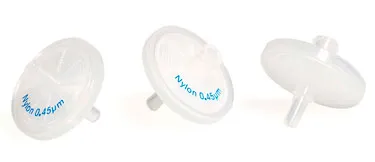

 Philippines
Philippines

































